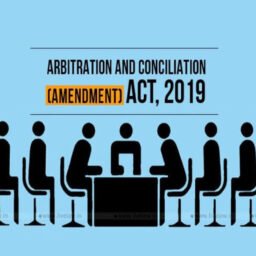“The shift to a cleaner energy economy won’t happen overnight, and it will require tough choices along the way. But the debate is settled. Climate change is a fact.”
– Barack Obama
Every human activity, every choice we make in our daily lives, either adds to the existing climate crisis or prevents further damage from taking place. Be it driving a personal vehicle to work or deciding to carpool to go to the same place, be it switching extra lights off while going out or keeping them switched on even when not in use, or be it using an old and inefficient petrol car or replacing it with a less polluting electric car; every decision counts, sometimes even the seemingly most non-obvious ones. After all, how could something as abstract as ‘Arbitration’ even be the reason for large-scale climate destruction? And why must we adopt a more holistic outlook to conducting arbitration meetings, in the first place?
What is Green Arbitration?
Green Arbitration, in simple words, is just an endeavour to minimize the carbon footprints and general environmental damage that each arbitration proceeding leaves behind it, upon its conclusion.
Experts estimate that around 20,000 trees need to be befallen for a single medium-large international arbitration to take place. Legal documents including petitions, pleadings, and affidavits, can extend up to hundreds and thousands of pages from the beginning of the case till the day the arbitral award is rendered. Moreover, when the parties need to undertake long train and flight journeys, the cumulative impact this leaves on an international level, cannot be possibly imagined. The Covid-19 pandemic has provided a unique opportunity to the arbitration community around the globe with respect to adopting and embracing more sustainable arbitration practices and using digital aids to reduce the use of paper, as far as possible.
What is the Green pledge?
The Green Pledge, launched by Lucy Greenwood(an international arbitrator herself), is a range of easy-to-adopt principles or a mode of conducting arbitration that is both sustainable and eco-friendly. The Green Pledge has now been signed by a considerable number of arbitrators, institutions, and law firms all across the world, and continues to be well received by the entire community. These guidelines talk about minimizing paper-based printing and encouraging the use of videoconferencing facilities, avoiding unnecessary travel, and also, providing witnesses and experts with similar facilities.
What are green protocols?
Green protocols were introduced on April 22nd, 2021(also observed as Earth Day). The Green Protocols predominantly focus on 3 critical areas where changes and modifications in arbitration practitioners’ behavioural practices could have the greatest influence in significantly lowering our carbon emissions, namely: Adoption of clean forms of energy, Elimination or reduction of long–haul travel, and Minimization of waste, such as eliminating physical copy filings altogether.
Highlights of Emilia’s protocol:
- In order to save the maximum amount of paper(and thus trees, which are employed in producing paper), taking printouts should be minimized as far as possible, and electronic communication(through emails and joint platforms) should be encouraged. Moreover, individuals must avoid asking for hard copies from their fellow arbitrators, unless absolutely necessary.
- Documents should not be taken out in print, unreasonably, but when electronic communication is not possible at all, printouts should be double-sided in nature i.e both sides of the printing paper must be utilized for inking.
- Where printing work and physical documents are non-negotiable, recycled papers should be put to use as far as possible.
- Electronic bundles(soft copy bundles) must be produced wherever possible, and hard copy bundles should be recycled safely and confidentially. Even witnesses and experts should be provided with documents in a digital form.
- It must not be forgotten that emails also generate carbon footprints and the larger the size of attachments used, the greater is the amount of carbon dioxide produced by the device. So, the size of emails and electronic files should also be kept minimized.
- Remote meetings should be welcomed as the standard norm(even after the pandemic ends). Travelling must be avoided as far as possible, but where it’s not possible, it must be done by lesser polluting and more sustainable modes like electronic vehicles and not by flights and trains, necessarily. Where experts/witnesses are required to travel to meet counsels/solicitors, their accommodation should be ideally located close to the meeting location to avoid the need to use motorized transport.
- The parties agree to consider/investigate if the matter could be settled without the requirement for a hearing or only through the exchange of papers, and they also must limit extraneous travel.
Issues
The overall efficiency and effectiveness of the arbitration process have improved thanks to virtual proceedings. However, the road forward still appears to be riddled with challenges including but not limited to; security problems, implementation challenges, a lack of quality internet connection, and scepticism with regards to the adoption of newer technologies. With an increasing number of cyber-attacks and confidentiality breaches, not everybody feels comfortable with this virtual manner of functioning. The Seoul protocol talks about standards that need to be maintained with regards to encryption, video conferencing, hearing backup systems, etc. Additionally, energy-efficient infrastructure at businesses and hearing venues may also result in additional costs, so people are reluctant to change the status quo. Arbitrators and involved parties need to be taught the technical ‘know-how’ of using video conferencing facilities, drafting emails, and everything involved, so that they feel comfortable in participating in this ‘new normal’ form of arbitration.
Development till now and the road ahead
The British Virgin Islands International Arbitration Centre, in November 2021, introduced a series of eco-friendly measures(most notably the provisions of remote hearings and electronic filings of submissions), to make the arbitration process less punishing for the environment. In India, no formal conversation has taken place till now concerning green arbitrating practices. It’s high time that we start acting in this direction too as we’ve done on other fronts of climate protection.
Adoption of green protocols means that our arbitration professionals are urged to use digital bundles rather than paper records during hearings, collaborate electronically, and meet through virtual meetings rather than face-to-face wherever feasible and possible. These guidelines will also govern our arbitrating conduct along with encouraging cost-cutting behaviours for our clients and helping our firms achieve their net-zero targets.
Author(s) Name: Anshika Singh (Nirma University, Ahmedabad)








